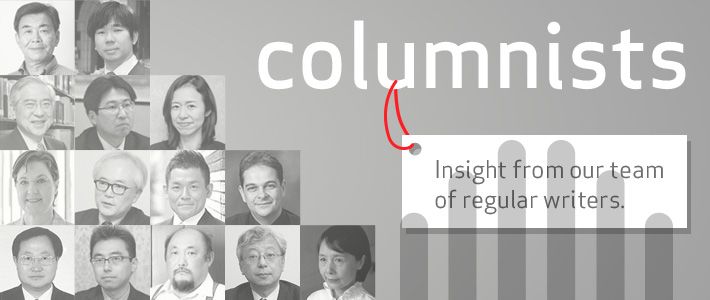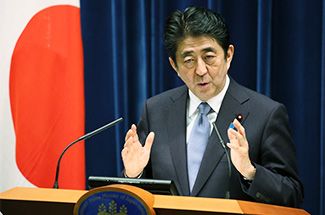
The Long Road to Reconciliation in East Asia
Politics- English
- 日本語
- 简体字
- 繁體字
- Français
- Español
- العربية
- Русский
Looking Ahead While Upholding the Murayama Statement
The seventieth anniversary of the end of World War II is now the subject of much discussion. Here in Japan the media has been full of references to four terms in this connection: “aggression,” “colonial rule,” “deep remorse,” and “apology.” These are key terms regarding Japan’s actions in the years before and during World War II that appeared in the statements issued by Prime Minister Murayama Tomiichi in August 1995, the fiftieth anniversary of the war’s end, and by Prime Minister Koizumi Jun’ichirō in August 2005, the sixtieth anniversary. These statements have elicited favorable assessments to a certain degree from other Asian countries, as seen, for example, in the speech that Chinese Premier Wen Jiabao delivered to Japan’s National Diet in April 2007. Prime Minister Abe Shinzō has declared that his administration upholds these previous statements “as a whole.” This is certainly one opinion. Be that as it may, the above four terms alone do not express the entirety of the historical issues between Japan and its neighbors.
▼Further reading |
The report recently submitted to the prime minister by his Advisory Panel on the History of the 20th Century and on Japan’s Role and the World Order in the 21st Century, while looking back at the past, also features the themes of postwar reconciliation and future vision. The focus on postwar reconciliation is a distinctive feature of this report.
The Postwar Peace-Building Process in East Asia
Any armed conflict that causes many deaths, be it a world war or a regional clash, leaves a negative legacy in the nations involved, both victors and vanquished. This takes various forms, such as arguments within defeated nations over who was to blame for the outcome and rivalry within victorious nations among those claiming credit for their feats. The issue of historical perceptions—which here in Japan is generally viewed as referring to the differences between our country and our neighbors over perceptions of Japan’s prewar and wartime history—is actually present in countries all around the world.
One of the fields covered in academic studies of international relations and international politics is “peace building.” Studies in this field consider the process by which peaceful orders are rebuilt among countries and regions after they have been through wars or other armed conflicts. How about East Asia in the wake of the Sino-Japanese War of 1937–45 and World War II? What sort of peace building has taken place here? And has it led to reconciliation between the former foes?
The process of seeking reconciliation starts with diplomatic efforts between states and then gradually turns to the societies of the countries involved. Reconciliation needs to be pursued both between states and between societies.
On the diplomatic front, the key first step is conclusion of a peace treaty and establishment of normal diplomatic relations. But this set of formalities is just the first step. It is an essential step, since nothing can be achieved until the states involved are at peace with each other. But even if states conclude a peace treaty under which they agree that the issue of reparations has been settled, that alone does not heal the wounds left by the conflict on the people of their nations. And if their history education stresses the legitimacy of their own country’s wartime actions, the feelings of animosity toward former foes are liable to persist and even become more intense.
The Ongoing Need for Sincere Remorse and Apologies
If we consider the current situation in East Asia, including the friction between Japan and its neighbors over the history issue, we can hardly say that reconciliation has been achieved. Even so, Japan does seem to have reached a certain level of reconciliation with Taiwan and the countries of Southeast Asia, in contrast to the state of its relations with China and South Korea.
Reconciliation is said to be a two-way street, requiring positive moves from both sides, including sincere remorse and apologies from the offender and a spirit of forgiveness from the victim. It is not clear that this sort of “by the book” reconciliation has actually been achieved with Taiwan and Southeast Asia. The victims seem to have adopted a “Forgive, but never forget” mind-set toward Japan, but further study is required to determine whether this is the outcome of deliberate intentions and moves aimed at reconciliation by the parties involved.
As this indicates, reconciliation entails an extremely difficult balancing act. It is affected by the complex interaction among various factors, including the international environment and domestic political conditions. And even after the parties appear to have reconciled with each other, the situation may change. In other words, reconciliation is reversible.
So even if Japan may at some point seem to have achieved reconciliation with other countries over the history issue, we cannot then set the issue aside and pay no further attention to it. As the offending party, Japan must always continue to show sincere remorse and to apologize for its past acts. As time passes, the frequency of the apologies will surely decrease, but they will need to be kept up at symbolic events, and the spirit of remorse must be passed on to future generations through education. Meanwhile, our country will also need to deal sensitively with various changes in the situation.
In the cases of China and South Korea, we are far from reaching even a “Forgive, but never forget” situation. In both countries, history education focuses on the evils of Japanese aggression and colonial rule, and the story of these experiences is tightly knit with the tale of how independence was won and the current nation-state was established. The mass media of both countries, including newspapers and television, respond quickly and loudly to developments relating to the history issue, and these responses get echoed and amplified between them. And the social media in both countries carry extremist rhetoric. In international forums, meanwhile, China and South Korea energetically advance their cases against Japan, and we have recently seen them taking various moves to counter Japan even in connection with the designation of world heritage sites.
Under these circumstances, it seems unlikely that we will see reconciliation between Japan and China or Japan and South Korea anytime soon. Even so, we must remember that just because the other side uses history as a tool for political purposes, that does not mean that we can neglect making our own efforts to reach reconciliation. There is absolutely no need for Japan to accept unreasonable demands, nor is it necessary for us to adopt the views of history espoused by others, but we do need to continue showing our determination to achieve reconciliation with them.
Issues for the Postwar Generations to Address
In the years following the end of World War II, many efforts were undertaken to achieve reconciliation with China and South Korea. There was a Japan-China friendship movement, and numerous Japanese business leaders endured hardships and achieved positive results in building ties with China. Meanwhile, wartime experiences provided the basis for the establishment of sister-city and similar relationships between local governments in Japan and China, with localities in Japan that had been home to army divisions or regiments involved in the war against China promoting friendly exchanges with Chinese regions invaded by these military units. And Japanese intellectuals did their part by conducting extensive deliberations over responsibility for the war; they also worked to examine Japan’s prewar failures and mistakes through various discussions of what some labeled the “Fifteen-Year War” and the path that led to it.(*1)
While continuing to earnestly study our country’s past misdeeds, I believe we must also reexamine the initiatives taken up to now in pursuit of reconciliation and recognize the ways in which they have been lacking. A focus on reconciliation should clarify the agenda for the postwar generations who were not involved in the conflict. Though some will probably question the need for Japan to repeat the words and deeds of the decades from the 1950s through the 1970s, today’s Japanese society does need to come up with its own vision for reconciliation.
“Remorse” and “apology” will continue to be important in this connection, but what will be even more important than the words used will be the deeds that are taken to overcome earlier shortcomings in the quest for reconciliation. I believe it will be essential to show with our actions that we have not forgotten the past and that we wish to make amends.
The international community is said to be entering an age in which national sentiment plays an important part alongside political and economic concerns. Perceptions of history are a key element in shaping national sentiment, and the way a country addresses historical issues relates to its modus operandi as a nation-state. What will be important in this context is not to take a constantly passive posture toward the words and deeds of others but rather to show a clear stance of aiming for reconciliation—a stance accompanied by appropriate action on an ongoing basis. This should be on the agenda for the state, for the media and other social organs, and for each of us as individuals.
(Originally written in Japanese on August 10, 2015.)(*1) ^ ”Fifteen-Year War” is a designation that covers the hostilities conducted by Japan over the decade and a half (actually just under 14 years) from 1931 through 1945, taking the Manchurian Incident, which broke out in 1931, the subsequent Sino-Japanese War (1937–45), and the Pacific War (1941–45) as closely linked parts of a single, indivisible war.
Japan China Kawashima Shin postwar Korea Xi Jinping Abe reconciliation aggression apology remorse
 Seventy Years On: The Abe Statement
Seventy Years On: The Abe Statement